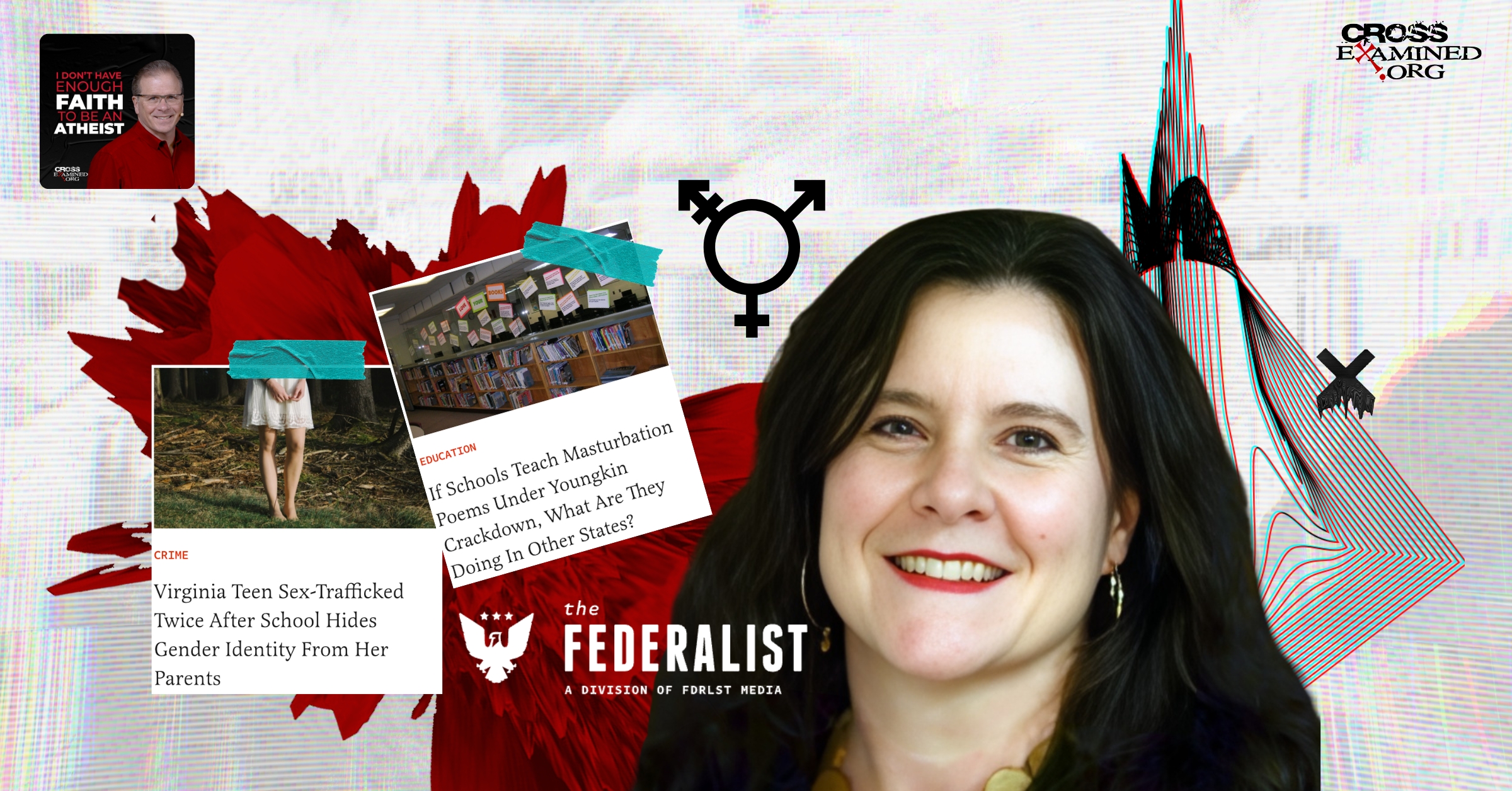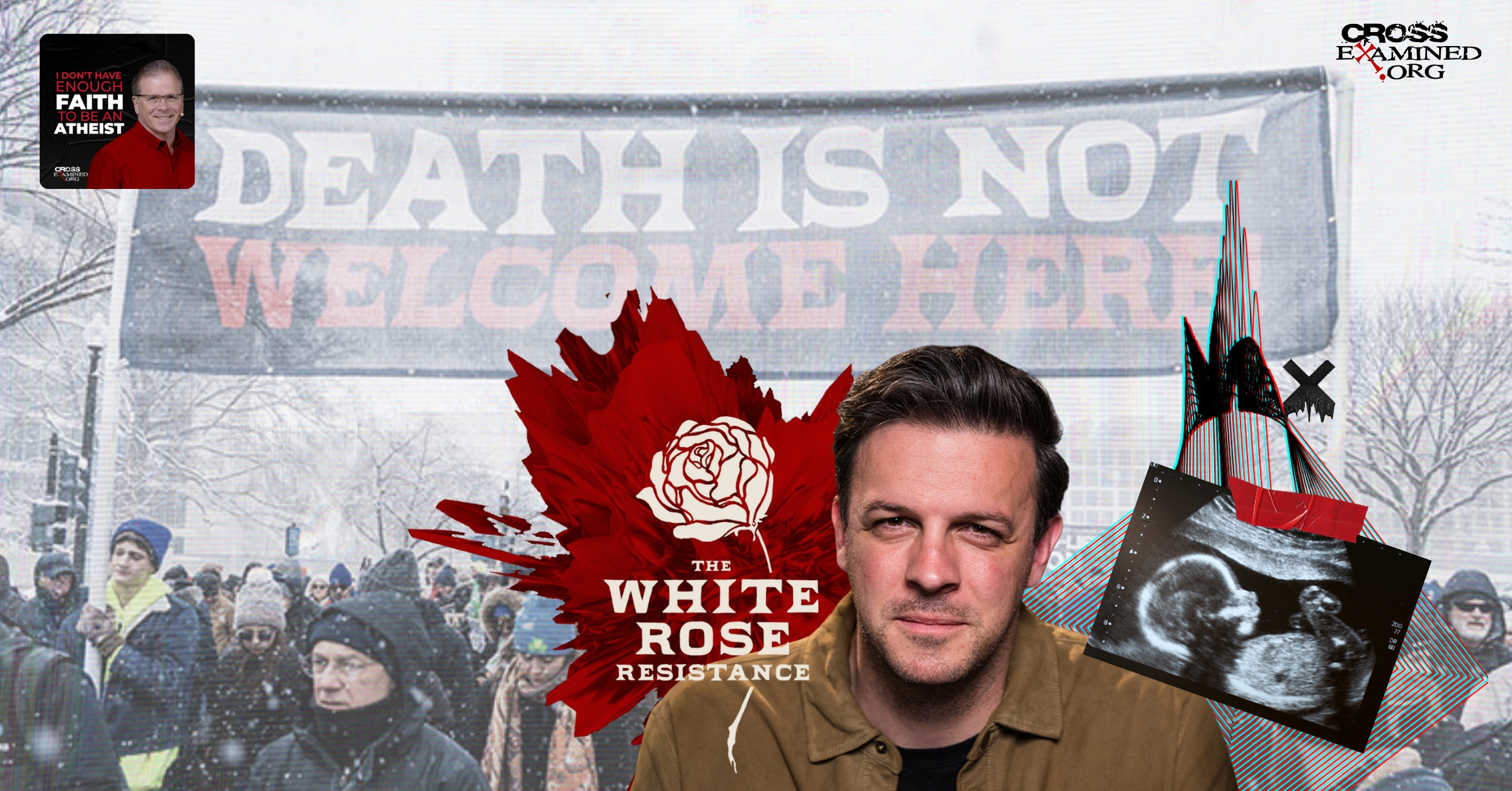Apologetics and Politics
How should we live?
How should we think?
How should we vote?
Are these questions with objectively right or wrong answers? That is to say, is it true — apart from human opinion — that humanity ought to live, think, and even vote in a certain manner?
Some Questions that Need Answering
If it is not objectively right or wrong to live, think, or vote in a certain manner, then does anything really matter? Moreover, if it is objectively wrong to live, think, and vote in a certain manner — how would we know? After all, is how we ought to vote determined by the majority vote? That doesn’t seem right. Are these things merely based on your emotions or “how it makes you feel?”
That doesn’t seem right either because, as Ben Shapiro often says “Facts don’t care about your feelings.” One might not have warm feelings toward Ben Shapiro, but it is quite hard to disagree with his mantra. In fact, it is impossible to argue against it without proving his point (since one would have to appeal to facts to argue against the importance of facts).
Ultimately, the answer to these questions boils down to the ontological question: “Does God exist?” More specifically: “Is Christianity true?”
I will soon explain why the existence or non-existence of God is bedrock. But if how we ought to live, think, and vote are based upon this bigger ontological question, the epistemological questions are raised once again: “How would we know?”
How would we know if God exists — or not? And if God does exist, how would we know if Christianity is true? After all, perhaps Islam, Judaism, or some form of deism is true? How would we know? Can we know?
Before we answer that question, we need ask one more question: “What does it mean to know?” What is knowledge? The late Dallas Willard (my first lecturing professor at Biola University) provides a working definition of knowledge:
[block quote] “We have knowledge of something when we are representing it as it actually is, on an appropriate basis of thought and experience.”[1]
Willard shares that we have knowledge of something when we have proper justification or warrant for our beliefs and that our beliefs regarding it conform to reality. Socrates referred to this justification as a “tether to reality.”
A statement is true when it corresponds to reality and reality is the way things are. Knowledge, therefore, must align with truth (based on evidence or insight) and it must be “tethered” to reality. That is to say, knowledge is not based upon luck.
An Illustration from Math Class
To put it in simple terms, consider three students in a math class. The teacher gives the students a multiple-choice quiz to see if they KNOW how to solve a story problem. The first student does not understand the problem at all, but luckily happens to guess the correct answer.
He circles the correct answer on the paper. . . but does he KNOW the answer – does he possess KNOWLEDGE?
The next student does not understand the problem either, but he cheats and looks on his neighbor’s quiz, hoping she got it right. And he circles one of the alternative options, the same one his neighbor circled.
The answer happens to be correct, but does he KNOW the answer?
Finally, the last student not only understands the problem just fine, but she shows her work leading to the correct answer. The fact that she “showed her work” is the “tether” that demonstrates to her teacher, and to herself, that she possesses KNOWLEDGE of reality.
Now, one may happen to possess true beliefs. If, however, he does not possess a proper justification, a “tether” for a specific belief, and his true beliefs are simply based on “luck,” his belief does not qualify as a knowledge claim (even if it happens to be true).
Willard notes that rational people are those who base their lives upon knowledge. It is not required to know something is true with absolute 100 percent certainty. It simply requires a commitment to a way of life and thought based upon evidence and a justified trust in God through knowledge.
A Tether to Reality
Let us return to the BIG question: Can we have real knowledge of God? A cumulative case of evidence appealing to logic, science, and history pointing toward God’s existence and the truth of Christianity says we can. Consider a few of these multiple “tethers”:
- The Kalam Cosmological Argument
- The Leibnizian Cosmological Argument
- The Moral Argument
- The Teleological Argument
- The Ontological Argument
- The Evolutionary Argument Against Naturalism
- The Freethinking Argument Against Naturalism
These evidences provide the justification required for the knowledge of God, but what view of God is true? After all, we have the “final four” from which to choose:
- Christianity
- Judaism
- Islam
- Deism
This all comes down to the “tether” or historical evidence of the resurrection of Jesus Christ. Since Judaism, Islam, and deism all deny the resurrection of Jesus, and Christianity affirms it, if there is evidence based upon the historical method that Jesus actually rose from the dead, then Christianity would provide the BEST explanation of all the data. Guess what . . . we have that evidence:
- The Historical Argument for the Resurrection of Jesus (The Facts)
- The Historical Argument for the Resurrection of Jesus (The Explanation)
It is also vital to note that Christianity enjoys the “Ring of Truth” when compared and contrasted against other contenders. Moreover, we can also have knowledge of God through a personal and experiential relationship with Him through the inner witness of the Holy Spirit — but this is also supported by all the evidence previously mentioned.
With a cumulative case of logical arguments in mind, a Christian should be a person of faith . . . because he or she is primarily a person of knowledge. Christians put their trust in what they know is probably true. This is what William Lane Craig refers to as “reasonable faith.”
What I’m NOT Saying
Please hear me: I am not proposing that we can know Christian theism is true with 100 percent certainty — if we had that it would not be “faith.” We can, however, gain knowledge of God with a high degrees of certainty. This includes not only knowledge of a powerful and personal Creator of the universe, but also knowledge of the particular truth of Christianity through evidential and spiritual means.
If God exists and Christianity is true, then it would follow that humanity was created to live a certain way and created to think in a certain manner. That is to say, there would be some objective “shoulds” to how humans ought to live and how we ought to think. It logically follows that this would even include how we ought to vote and think about cultural and political issues (See “The Great Commission Is Racist” as an example).
Now, many people think that we should not mix politics and religion. Is that true? Are they right? Why think a thing like that?
A Tether to Political Reality
It would be absurd not to have one’s worldview (religion) influence their politics. In fact, one’s worldview ought to do at least that much (and not the other way around). That is to say, if one truly believes that God exists, created humanity on purpose and for a specific purpose, and that Jesus revealed how we ought to live, then the laws of politicians will either approximate the “law above the law” (ultimate reality) or not.
If this is the case, then politicians can actually pass “illegal laws” that “We The People” ought to resist and rebel against.
If God does not exist, however, then humanity was not created on purpose or for any specific purpose. Thus, we would be mere accidents if atheism is true. If humanity is nothing but accidents then politics is objectively meaningless (along with everything else) as there would be no objective purpose in the existence of humanity (if this is the case, say goodbye to objective or unalienable human rights).
Thus, on atheism, it would not really be wrong (objectively speaking) if Obama, Trump, Hitler, or Stalin were calling the shots. It is simply one’s irrelevant subjective opinion (which is merely causally determined by physics and chemistry).
If God exists and Christianity is true, however, then one’s subjective political opinions can be objectively right or objectively wrong.
A Tether Between Politics & Gospel
It is often asserted — even by some Christians — that they do not want their “politics and religion mixed.” This is a good indicator that they probably do not understand their own religion for at least two reasons: (1) Jesus got involved in politics, and (2) we are commanded to love all people and to share the gospel with the world.
First, consider the fact that Jesus constantly interacted with the Pharisees in the New Testament. The Pharisees were the religious and political rulers of Israel. Matthew 23:23-24 provides a good example (note that Jesus was not always “nice”):
23 “Woe to you, teachers of the law and Pharisees, you hypocrites! You give a tenth of your spices—mint, dill and cumin. But you have neglected the more important matters of the law—justice, mercy and faithfulness. You should have practiced the latter, without neglecting the former. 24 You blind guides! You strain out a gnat but swallow a camel.”
Frank Turek points out the following in Does Abortion Trump Everything Else? (I encourage all to listen to this podcast in its entirety):
“Not all moral laws are of equal weight. Jesus spoke of weightier matters of the law in Matthew 23:23. And the least of these, Matthew 5:19. And the greatest commandment, Matthew 22:36. He told Pilot that Judas had committed the greater sin, John 19:11.”
Think about the weightier or “more important matters of the law” and modern-day America. Politicians today are more concerned about the consequences of using plastic drinking straws than placing restrictions on abortion (killing millions of innocent human beings) and actually advocate for it in many cases. What do you think Jesus would say to these politicians or those who vote for them? Based on His reaction to the political leaders of Israel, do you think Jesus would worry about hurting the feelings of modern-day politicians or those who vote for them?
Indeed, I believe Jesus would say “facts don’t care about your feelings.” We must not disregard the “more important matters of the law.”
Second, if a Christian does not take politics seriously, then he or she probably does not take evangelism seriously. Turek shows a satellite image of the Korean peninsula to make this point (See Why Christians Should Be Involved In Politics).
Notice the stark contrast between the north and south. South Korea is filled with light, activity, and productivity. According to Turek, “it is one of the most Christianized countries in the world.” North Korea, on the other hand, stands in polar contrast to their neighbors south of the border. North Korea is dark and seemingly “dead.” Turek accurately describes it as a big “concentration camp.” What is the difference between North and South Korea? One word: POLITICS! We can clarify: Communism!
Many South Koreans have heard the gospel of Jesus Christ because there is political freedom to share the gospel. The communist government of North Korea, on the other hand, does not allow the gospel to be shared — it is a communist dictatorship based upon Marxism which is an ideology that makes Hitler’s Nazism look like a summer picnic. Indeed, we must treat the “hammer and sickle” in the same manner in which we treat the swastika.
If the gospel message is true (and we have good reason to believe it is true) then this is the most important information a person could ever have access to or possess. If we truly love all people — as Jesus commanded — then we must desire the people who have never heard the gospel to have access to this eternally vital information.
Since Marxist policies (politics) are keeping millions of souls from hearing the gospel, if we truly love and care for all humans, then we ought to care about politics and vote in a certain manner. We ought to be “Anti-Ma” (anti-Marxism). To not care about politics is to not care about people.
The Lesser of Two Evils
If Christianity is true, then we must “mix” it with politics — at least if you are striving to love God with all of your mind and live a consistent Christian life striving to love all people. After all, if Christianity corresponds to reality, then the politicians you support and vote for should advance policies that correspond to reality too. Of course, no politician will do this perfectly, but some political views and policies approximate to reality (and the nature of God) more than others.
Unless Jesus Christ is running for office, all elections are a vote between the lesser of two evils. As Turek notes, if Billy Graham was running against Hitler, it would still be a vote between the lesser of two evils. Obviously, one who strives to be an objectively good person would do anything possible to keep Hitler — because of his politics — out of office (even if Hitler happened to be “nicer” than the other candidate). That would include “mixing” politics with religion and sharing his or her views with as many voters as possible.
Bottom line: Understanding ultimate reality by way of apologetics, philosophy, and logical theology places humanity in a position to know how we ought to live, think, and even how we ought to vote in an objective sense. Indeed, understanding ultimate reality provides an expertise allowing one to intelligently provide insight into things that fall under the umbrella of ultimate reality — like some political issues — as an expert too. That is to say, political opinions can be informed from knowledge of reality.
If one’s religion is true and their political view is also objectively good or right, then one’s religion and politics must be “mixed” . . . independent if they realize it or not. Moreover, if there is an objective manner in which we ought to live and think, then one’s vote will be objectively right or objectively wrong. Choose wisely and stay reasonable (Isaiah 1:18).
References:
[1] Dallas Willard, Knowing Christ Today: Why We Can Trust Spiritual Knowledge, Harper Collins, New York, NY, 2009.
Recommended resources related to the topic:
Legislating Morality: Is it Wise? Is it Legal? Is it Possible? by Frank Turek (Book, DVD, Mp3, Mp4, PowerPoint download, PowerPoint CD)
Reflecting Jesus into a Dark World by Dr. Frank Turek – DVD Complete Series, Video mp4 DOWNLOAD Complete Series, and mp3 audio DOWNLOAD Complete Series
Correct not Politically Correct: About Same-Sex Marriage and Transgenderism by Frank Turek (Book, MP4)
Jesus vs. The Culture by Dr. Frank Turek DVD, Mp4 Download, and Mp3
Timothy A. Stratton (PhD, North-West University) is a professor at Trinity College of the Bible and Theological Seminary. As a former youth pastor, he is now devoted to answering deep theological and philosophical questions he first encountered from inquisitive teens in his church youth group. Stratton is founder and president of FreeThinking Ministries, a web-based apologetics ministry. Stratton speaks on church and college campuses around the country and offers regular videos on FreeThinking Ministries’ YouTube channel.
Originally posted at: https://bit.ly/3KL9SdU











